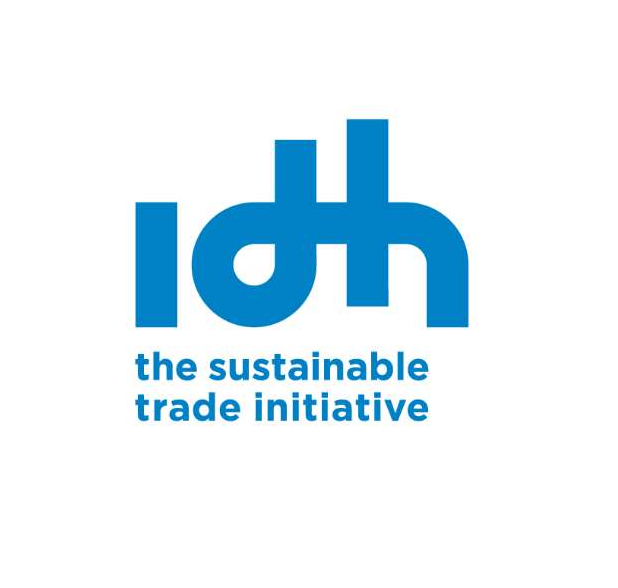Community / Land projects / GLA - Atewa and Juabeso-Bia in Ghana
GLA - Atewa and Juabeso-Bia in Ghana

€0
01/16 - 12/20
Voltooid
This project is part of
Implementing Organisations
Donors
Data Providers
General
The Green Livelihoods Programme (GLA) programme in Ghana works in the Juabeso-Bia landscape in the Western Region and Atewa forest landscape in the country’s Eastern Region. Both landscapes are situated in the tropical evergreen forest zone and are rich in biodiversity, as illustrated by areas that have been designated as Global Significant Biodiversity Areas (GSBA). Both landscapes support the provision of the four IPGs; water, food security, biodiversity and climate resilience. Juabesa-Bia landscape contains the only biosphere in Ghana and is extensively covered by cocoa plantations. Atewa contains the headwater for some of the important water systems in Ghana notably the Densuriver, on which a major part of the population in Accra depends. However, the landscapes are under serious threats from mining; illegal logging and expansion of farming. The threats are affecting its ability to support the provision of IPGs in the long term and the status of the GSBAs areas. Both landscapes are representative for larger parts of Ghana and face problems that are wide spread in the country. The GLA Ghana programme will be headed by Tropenbos International Ghana, A Rocha Ghana and Friends of the Earth Ghana. Other CSOs will be involved in the implementation of the programme.
Objectives
The GLA programme encourages governments at different levels to enact, implement, enforce and monitor policies and regulations, private sector to apply best sustainable practices, and local communities to be responsible stewards of the natural resources. Local communities will be supported to adopt sustainable natural resources (NR) practices and use nature-based approaches such as agroforestry and agro-ecological farming practices. For these communities, especially women, the reform of the land and tree tenure system is important to make benefit sharing arrangements more equitable. An important instrument to ensure communities’ rights is the Community Resource Management Areas (CREMA) concept, of which the establishment, legalization and up scaling will be promoted. The same accounts for integrated land and water management with strong community participation, which will give local communities greater access to, and control over, their landscapes. As overall approach, the programme will support local communities to engage government and the private sector in the sustainable management of forested resources. District assemblies (DAs) will be encouraged to integrate biodiversity, climate resilience and responsible NR approaches into medium-term development Plans (MTDPs) and participatory land use planning. And efforts will be made to get the private sector to adopt and apply climate smart practices and agro-commodity production systems, landscape standards and sustainable sourcing practices. To achieve these outcomes the Theory of Change shows the following strategies / pathways: the formation of CSO networks and platforms; gender and social inclusiveness in landscape activities and partner organizations; capacity development of CSOs to generate and use evidence; capacity development of CSOs for advocacy and lobby actions; organizational strengthening of participating CSOs.
Other
The GLA programme implemented by Tropenbos Ghana will contribute to all the three main outcomes identified to contribute to sustainably managed landscapes in Ghana, i.e. Local communities are responsible stewards of the natural resources; Government at all levels enact, implement, enforce and monitor policies and regulations; and Private sector applies best sustainable practices. Tropenbos will take the position of knowledge broker, making knowledge available for practice and policy and will focus on the Juabeso-Bia landscape. In 2017, Tropenbos Ghana will support the integrated planning and management of the Juabeso-Bia landscape. Stakeholders like local communities, local government and the private sector involved in the area will be made aware of the importance of integrated land and water management and efforts will be made for multi-stakeholder dialogue at landscape level. Linked to this integrated approach, we will work on improved logging and mining as well as reduction of illegal practices, tree tenure reform, legislation and upscaling of the Community Resource Management Area (CREMA) approach. More specifically, we will provide information and tools and create awareness to enforce, monitor and report on forestry, mining and logging laws and reduce illegal practices. We will strengthen non-state actors to improve FLEGT-VPA and REDD+ processes in Ghana. We will develop and support multi-stakeholder consultations on the proposed tree tenure reforms and prepare, together with other CSOs, a CSO plan to strategically approach this issue. We will create awareness of stakeholders on the CREMA approach and support initiatives to identify and develop new CREMAs. The main strategies that we will use are (1) constituting and strengthening Community Based Organizations and Civil Society Networks and Platforms at landscape level and (2) targeted capacity building for CSOs, CBOs and Networks on the topics mentioned above. In addition, capacity of TBI Ghana will be built on lobby and advocacy skills, legislation, gender, communication and strategy development as well as organizational strengthening.


